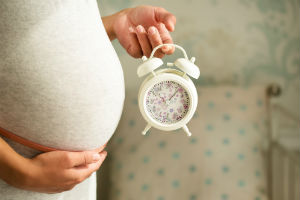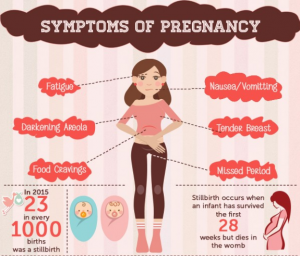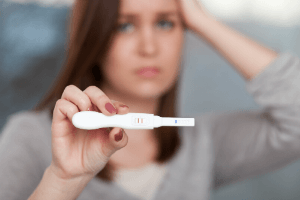Understanding Follicle Stimulating Hormone: Testing, Timing, and Results
The Follicle-Stimulating Hormone Test (or FSH Test) measures follicle-stimulating hormone levels in the blood. It helps diagnose conditions caused by abnormal levels of FSH Hormones and can be administered to men, women, and children for various reasons.
This article will delve into what the FSH Hormone is, how the FSH Test works, its uses, and more.
What is the Follicle Stimulating Hormone?
Hormones are essentially chemical messengers, traveling through the body and coordinating different processes. The Follicle Stimulating Hormone (FSH) is important for sexual development and reproductive health. It is produced in the pituitary gland, affecting the development and function of the ovaries and testicles in women and men, respectively. It gets its name due to its effects on the ovarian follicles.
The functions of the Follicle Stimulating Hormone vary based on age and the gonads (or sexual organs) present in the body. For example, in children, it is typically triggered around puberty, which is responsible for the changes in sexual maturity that occur during this time. In boys, it helps trigger the production of the hormone testosterone. In girls, it triggers the production of oestrogen.
In women, the FSH helps stimulate the ovarian follicles to grow and prepare eggs for ovulation during the menstrual cycle. In men, it helps stimulate and sustain sperm production. Thus, follicle-stimulating hormone test levels can aid in the diagnosis of a number of problems in the body.
How Does the FSH Test Work?
The Follicle Stimulating Hormone Test is a blood test in which a healthcare professional draws a small amount of blood from the arm. The process typically takes about five minutes. Since FSH levels change during the month, menstruating women are usually tested during a specific time in their menstrual cycle.
The test can be used to assess problems with infertility and irregular menstrual cycles or diagnose ovarian disorders or any disorders of the pituitary gland. In men, the test assesses and evaluates gonadal failure, low sperm count, or testicular dysfunction. In children, the test is used to aid diagnosis of early or late puberty.
The test is low-risk but may cause side effects such as bruising, pain, redness at the site of the needle, an infection, or dizziness.
When to get the FSH Test?
Hypogonadism is a condition occurring in the gonads (the testes or ovaries), causing them to produce little to no sex hormones. A medical professional may recommend the FSH test if the following symptoms appear:
1. Symptoms in Women
Women may experience symptoms such as loss of libido or fatigue. Abnormal FSH levels can also cause infertility issues since the FSH hormone affects ovulation. Irregular periods, a lack of menstruation (amenorrhea), loss of pubic hair, and hot flashes may also be signs of issues with the FSH levels.
2. Symptoms in Men
Some symptoms are similar amongst men and women, such as a decrease in libido, fatigue, and infertility issues. However, infertility issues due to low follicle stimulating hormone levels would be caused by little to no sperm count. Symptoms also include erectile dysfunction, breast enlargement (also called gynecomastia), loss of muscle tone, and reduction in facial and body hair.
3. Symptoms in Children
Signs of hypogonadism in children could include delayed or absent menstruation (also called amenorrhea), no breast development in girls, or no growth spurts during puberty.
Follicle Stimulating Hormone Test Results
Healthcare professionals consider several factors to arrive at a diagnosis based on the Follicle Stimulating Hormone Test levels. These include sex, age, medical history, and others.
1. High FSH Levels
In women, high FSH levels may cause reduced ovarian function, ovarian failure, menopause, polycystic ovarian syndrome (PCOS), and more. In men, high FSH levels may be an indicator of testicular damage (caused by diseases or treatments like chemotherapy). In children, this may indicate the onset of puberty.
2. Low FSH Levels
Abnormally low levels of the Follicle Stimulating Hormone typically indicate issues with the hypothalamus or pituitary gland and are a direct cause of hypogonadism. This could also indicate problems such as tumours hampering the brain’s control over FSH production.
If an individual faces any of the symptoms listed above, it is essential to consult a healthcare professional. Normal FSH levels may vary depending on the individual’s age, sex, medical history, or underlying conditions. They are measured in milli-international units per millilitre (mIU/mL). In women, normal levels range from 10.0mIU/mL to 134.8mIU/mL, and in men, it ranges from 10.0mIU/mL to 12.4mIU/mL, depending on age.
In India, the Follicle Stimulating Hormone Test price varies depending on the provider. For accurate and affordable FSH testing, turn to Dr LalPathLabs.
FAQs
1. When is the best time to get an FSH Test done?
The FSH test is best taken between the second to fourth days of a woman’s menstrual cycle.
2. Does an FHS blood test require fasting?
No special preparations are needed to be done for this test.















